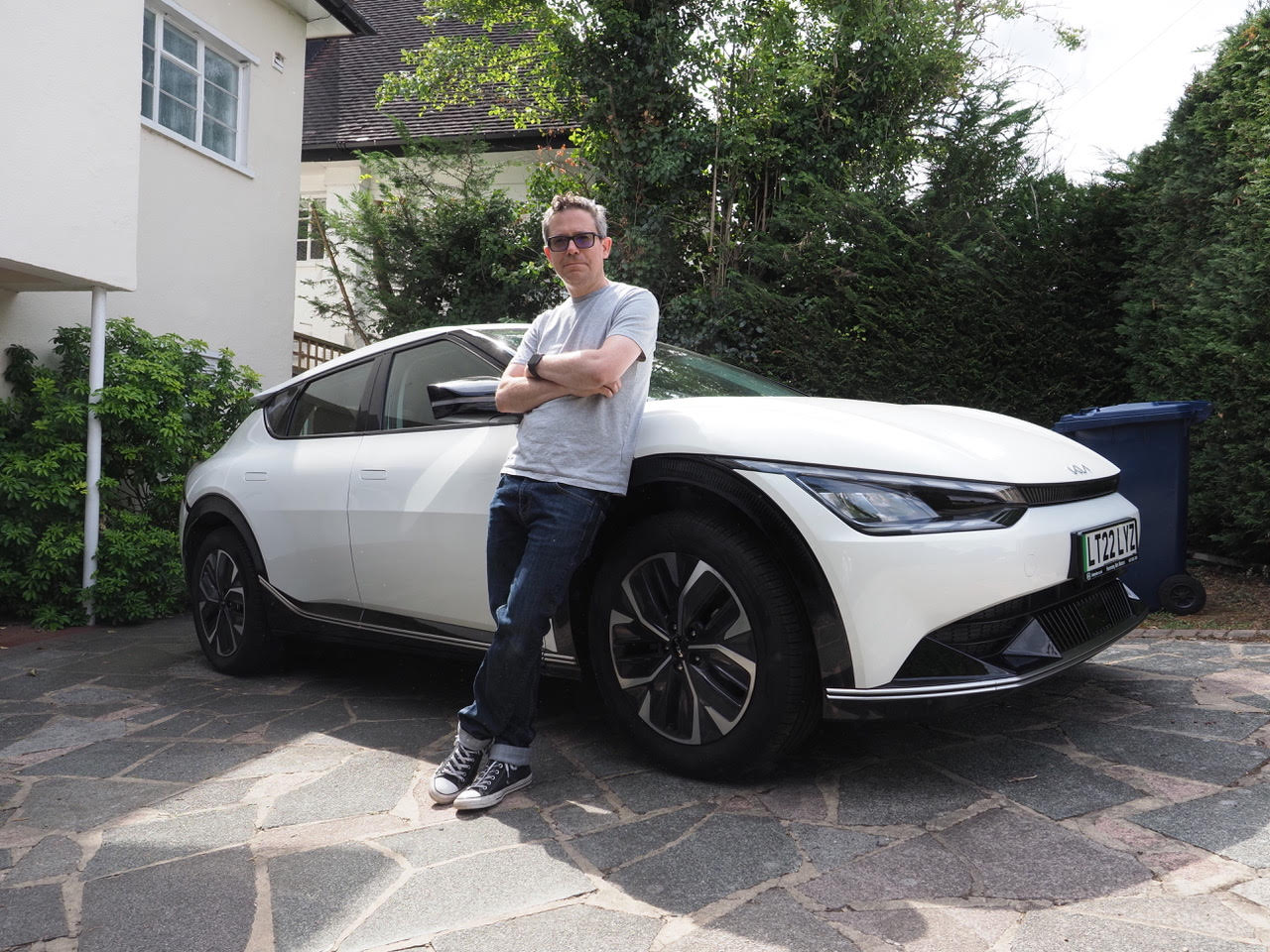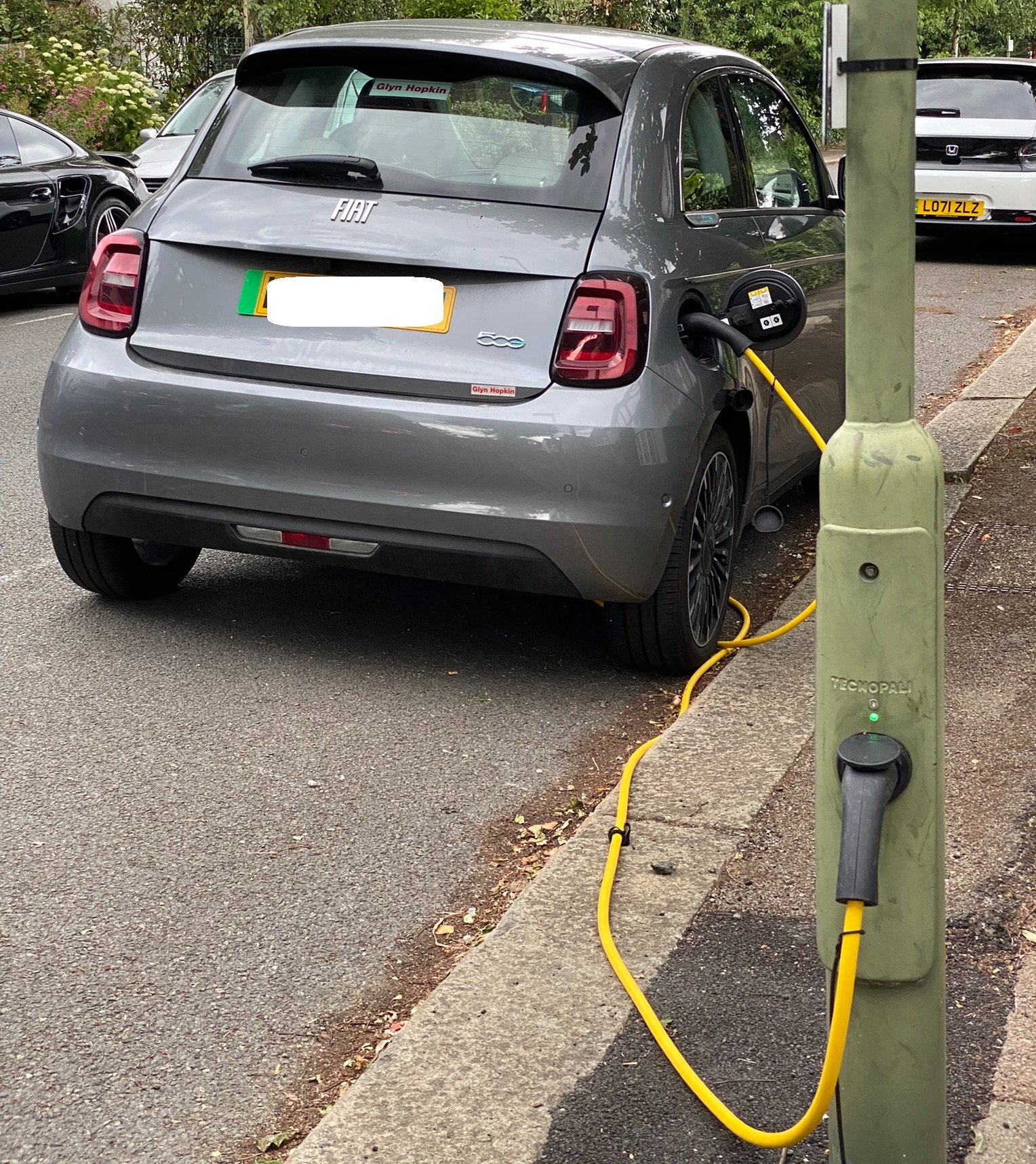Electric vehicle charging in the Suburb
Local resident and motoring journalist Ivan Berg gives an upbeat assessment of the options
I admit to being a bit of a petrol-head, my pride and joy is an oldish BRG (that's British Racing Green), Jaguar. I was with BBC Top Gear magazine for 17 years, and yet, and yet, I have been an enthusiastic promoter of the electric car since I first drove one and wrote about the experience for the magazine in, oh, I dunno, maybe as long ago as 1997.
I think it was a Citroen, or maybe a Peugeot, and the test drive was limited to 20 minutes, as that was about as long as the batteries would last. I was actually at the wheel for 10 minutes as I had to share the drive with the Daily Telegraph's motoring correspondent. We both thought that one day, in the very far off future, but possibly never, the electric car would be practical, and would have enough power and range to compete with petrol and diesel powered cars. We did agree that when they eventually did arrive, they would probably be cheaper to run. We didn't talk about the benefits to the environment or climate change, because in 1997 it wasn't on anyone's agenda.
And now, a quarter of a century later, electric cars really are here, and they have more than enough power and range to compete with petrol and diesel powered cars. And in the Suburb they're everywhere.

Ivan's son Nik poses proudly with his electric Kia EV6
A charged question
Now that you know where I'm coming from, let's talk about the only problem with electric cars that's left. How and where to charge them. If your house has a driveway you can install a 7Kw/h home charging unit on a convenient wall and then plug in your car for an overnight charge, just as you do your smartphone. And the electricity used will cost you no more than the standard rate, which can be as little as 28p per Kw/h. If your electric car has a typical 50Kw battery, a full charge can cost as little as £14, usually enough to take you at least 200 miles. Compare this to the cost of fuelling a family car that does 40 miles to the gallon for the same distance and you can see that you're quids in.
But, you ask, what about those of us who have no option but to park on the street? Well, you may have noticed that Barnet Council are installing charge points in street lamps (see photo). I say 'may' because there are less than a sprinkling of them in the Suburb. If you look at Zapmap, the 'must-have' smartphone app for electric car owners that shows you where the chargers are, you will see what I mean. Electric car owners have to apply for one to be fitted to a lamp post close to where they park, and promise to use it. You will pay a slightly higher rate, but of course you can still charge overnight at up to 7Kw/h.
If you think you can run an extension lead plugged in to your house and run it over the pavement, forget it. It's not only illegal, but the power flowing to the battery will be just a trickle. You can request a lamp post charge point by emailing Barnet Council at EVCharging@Barnet.gov.uk.
What does the Suburb Trust say about on-street lamp post electric car charging? I asked Trust Chief Executive Simon Henderson. He was unequivocal: “The Trust welcomes Barnet’s increasing provision of EV charging points that provide a discreet and convenient on-street facility without compromising the unique character or amenity of the Suburb.” He also welcomed the idea of the Trojan pavement pop-up charger (see below) because of its minimally intrusive nature.
As you might expect in this 21st Century, technology is, (pardon the pun), charging to the rescue. Camden and Brent Councils are currently trialling the Trojan Energy pavement pop-up electric car charger. This solves the clutter problem of chargers on pavement posts while making car charging at up to 22Kw/h available to all, at the roadside. You can read all about it at Trojan's website.
However, and this is a big 'however', maybe this is a solution looking for a problem. Electric car charge points are popping up everywhere; in supermarket car parks, in workplace parking bays, charging bays in petrol stations, motorway service stations and increasingly in specially designed and built 'fast charge hubs' in forecourts, complete with coffee bars, snacks and even cafes. (See Shell's Fulham EV Charging Hub.)

Coming soon to a lamp-post near you...
Time? It currently takes the fastest chargers around 15 minutes to add 100 miles to an electric car's battery. However, by 2024 Israeli battery company StoreDot, backed by Daimler, Volvo, BP and Samsung, will have batteries that do this in five minutes and by 2032 plans to reduce this to as little as two minutes!
Convenience? Home owners with driveways already have this and the pavement pop-up charger will make overnight charging increasingly available to all as the infrastructure develops.
Cost? Charging at home overnight is obviously cheaper than commercial hub charging. But hub charging is much faster, and is the only solution if you need to charge up on a long trip. And it needn't be that much more expensive.
*Ionity is one of a number of subscription charging services springing up. Some of them are BP Pulse, Shell Recharge, Podpoint, Instavolt, and Electric Highway.]
Article created:15th October 2022 Last updated:16th October 2022

